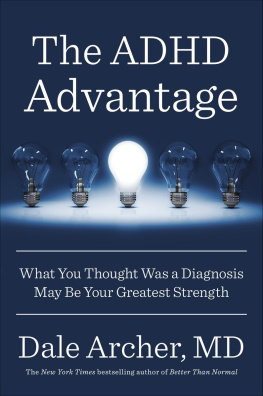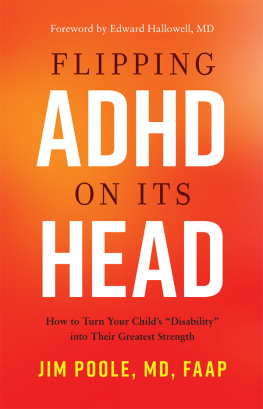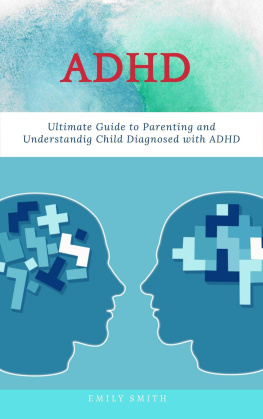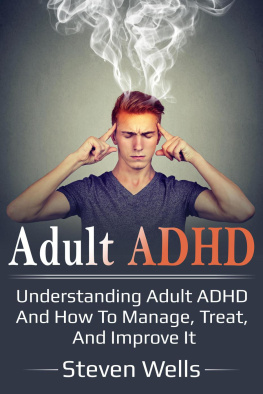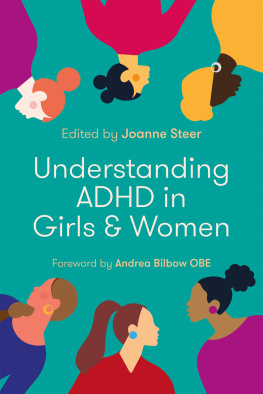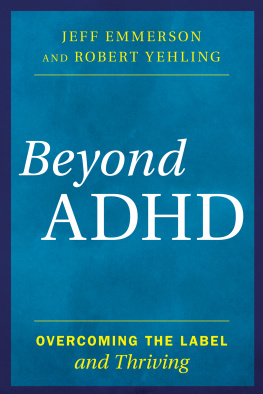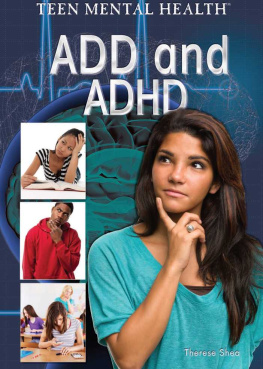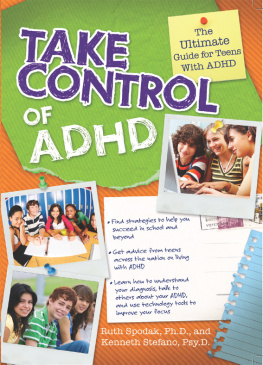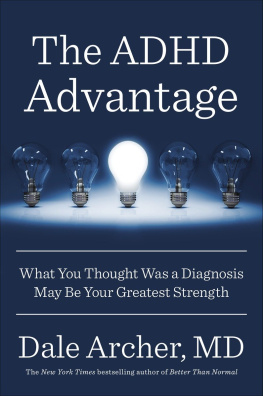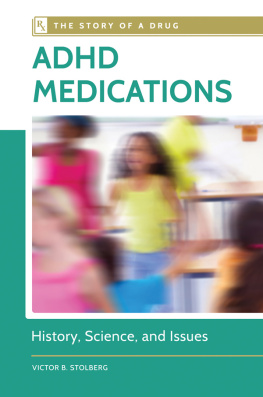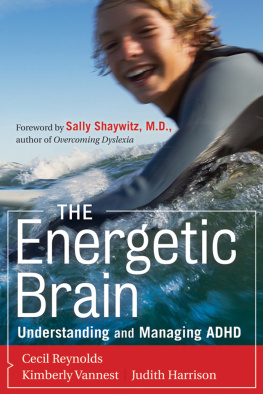
An imprint of Penguin Random House LLC
375 Hudson Street
New York, New York 10014
penguin.com
Copyright 2015 by Dale Archer
Penguin supports copyright. Copyright fuels creativity, encourages diverse voices, promotes free speech, and creates a vibrant culture. Thank you for buying an authorized edition of this book and for complying with copyright laws by not reproducing, scanning, or distributing any part of it in any form without permission. You are supporting writers and allowing Penguin to continue to publish books for every reader.
Most Avery books are available at special quantity discounts for bulk purchase for sales promotions, premiums, fund-raising, and educational needs. Special books or book excerpts also can be created to fit specific needs. For details, write Special.Markets@penguin randomhouse.com
ISBN 978-0-698-19438-0
While the author has made every effort to provide accurate telephone numbers, Internet addresses, and other contact information at the time of publication, neither the publisher nor the author assumes any responsibility for errors or for changes that occur after publication. Further, the publisher does not have any control over and does not assume any responsibility for author or third-party websites or their content.
Neither the publisher nor the author is engaged in rendering professional advice or services to the individual reader. The ideas, procedures, and suggestions contained in this book are not intended as a substitute for consulting with your physician. All matters regarding your health require medical supervision. Neither the author nor the publisher shall be liable or responsible for any loss or damage allegedly arising from any information or suggestion in this book.
Cover design by Jason Ramirez
Cover image by adventtr/Getty Images
Version_1
To my father
CONTENTS
FOREWORD
T he time to view Attention Deficit Hyperactivity Disorder through a new lens is long overdue. Dr. Dale Archers The ADHD Advantage redefines all but the most severe cases of ADHD as expectable difference, not medical diagnosis. Hopefully, his work will help reverse the dangerous global trend that seeks to medicalize individual variability and medicate it into oblivion. Dales view is quite different. Rather than suppressing ADHD symptoms, he finds the adaptive strengths in them that can be leveraged with awareness and the right set of tools. Pills are not always the answer.
As chair of the task force that produced the fourth edition of the Diagnostic and Statistical Manual, I have been alarmed by the tripling of ADHD rates in just twenty years. Its not that our kids are getting sicker. Human nature is remarkably constant. Some of the increase may be due to better recognition of real cases, but the evidence is overwhelming that we are in the midst of a fad largely engineered by drug companies misleading marketing to doctors, stressed parents and overworked teachers, as well as a quick-fix mentality and insurance demands that a diagnosis be made immediately on a first visit.
We are turning our kids into pill poppers. ADHD is now diagnosed in 11 percent of all children ages four through seventeen and is medicated in 6 percent. It is estimated that 15 percent of all children will get the diagnosis before they reach voting age. And the percentages get really crazy for teenage boys20 percent are diagnosed and 10 percent are medicated. Remarkably, a childs date of birth is the best predictor of whether he gets the label. The youngest kid in the class is almost twice as likely as the oldest to be diagnosed with ADHD. Misplaced diagnostic exuberance has turned age-appropriate immaturity into a psychiatric diseaseand treats it with a pill, rather than just letting the kid grow up.
The rates of ADHD jumped because of three events during the late 1990s. First, new and very expensive ADHD drugs came on the market. This provided the means and motive for aggressive marketing. Twenty years ago, sales of ADHD drugs in the United States totaled a modest $40 million; now they have soared to an obscene $9 billion. Most of this money would be better spent to improve schools by reducing class size and adding gym periods so that fidgety kids could blow off steam.
Second, drug companies were allowed for the first time to engage in direct-to-consumer advertising. Ads peddling the ADHD illness to sell the profitable pill soon dominated TV, the Internet and print media. The misleading message was that ADHD is common, underdiagnosed, the cause of all school and behavioral problems, the result of a chemical imbalance and easily treatable with a pill. The marketing was mostly aimed at primary care doctors, who now prescribe the bulk of psychiatric medicines. They usually write quick and unnecessary prescriptions after a very brief visit, being forced into a premature diagnosis in order to get paid. Kids are hard to diagnose and change a lot from visit to visit without interventionespecially since they are often first seen on their worst day. Medication should be a last resort used only for the clearest, most impairing, most pervasive and most persistent disorders. Instead, the medicines are often passed out like candy.
Third, the first report from a multicenter study suggested that medication was superior to psychotherapy in treating ADHD. Subsequent follow-up studies failed to support the long-term effectiveness of medication, but these did not receive very much attention.
It is easy to overdiagnose and overtreat ADHD. It is defined by nonspecific symptoms and behaviors that are widely distributed in the general population: poor concentration, distractibility, impulsivity and hyperactivity. At the poles, the diagnosis is easily made. At one pole, the kid who presents with classic early-onset, severe ADHD is unmistakable. At the other are the kids who clearly do not have ADHD. But in between (at an arbitrary, flexible, fuzzy and heavily populated boundary), it is tough to distinguish clinical ADHD from normal kids who are no more than frisky and difficult to manage. Dales ADHD continuum describes this in detaila new way of looking at symptoms that no longer warrants the immediate reflex of a prescription.
Overdiagnosis and loose prescription habits have fostered a thriving secondary market for pills originally intended for ADHD but instead illegally diverted for recreational use and/or performance enhancement. Remarkably, one-third of college students now use stimulants, as do one in ten high school students. Stimulant overdoses have quadrupled in recent years. And more than 10,000 two- and three-year-olds are already on stimulants. Things have gotten so out of hand that two federal agencies are now tussling over control of stimulant distribution: the Drug Enforcement Agency has clamped down on the production of stimulants, causing the Federal Drug Administration to express concern that not enough pills are available for legitimate use.
What started as a childhood epidemic is now also spreading rapidly to adults. ADHD promises to become a very popular diagnosis in this new market because virtually everyone would like to concentrate better and be less distractible. And the differential diagnosis in adults is particularly difficult because nonspecific ADHD-like symptoms accompany virtually every one of the psychiatric disorders. Far too often, ADHD is becoming a common add-on diagnosisespecially used by clinicians prone to prescribing polypharmacy drug cocktails. Adult ADHD should be diagnosed only when symptoms are clear-cut, definitely impairing and had their onset in early childhood. There is no such thing as late-onset ADHD.

